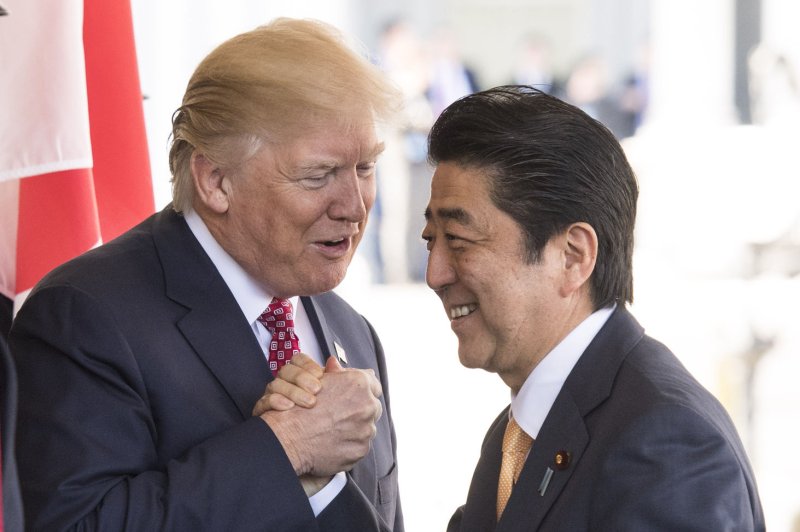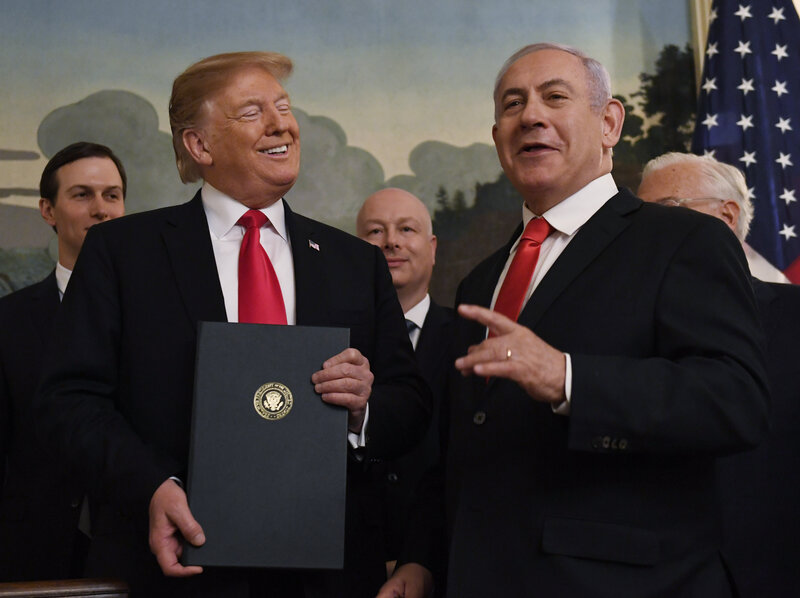
May Japanese-American Relations Come to Fruition in the New Era
Landmark events in the history of Japanese-American relations may be beginning. Prime Minister Shinzo Abe will visit Washington for a summit meeting. The agenda for the G-20 summit and the bilateral trade dispute will be discussed.*
Furthermore, in May, President Trump will visit Japan as a state guest and become the first head of state to meet the new emperor. The president is also considering attending a sumo match. The G-20 summit takes place in Osaka in June. Trump will visit Japan again, and the summit with China there will likely attract global attention.
For the upcoming three months, there will be repeated Japanese-American summits. It is unusual for the American president to visit the same country twice in two months in the first place. Have Japanese-American ties ever been closer?
Of course, bilateral relations are not calm. In Japanese-American trade negotiations, there are problems over the trade imbalance, automobiles, agricultural products and so on. How to respond to the rise in Chinese influence, how to contend with technological developments like the next generation of communication standards or 5G, or how to eliminate the threat posed by North Korea’s nuclear weapons and missiles — there are many topics where opinions should be urgently swapped.
On the other hand, the phrase “free and open Indo-Pacific” used by the Japanese government is now fixed as American diplomatic strategy, which may be evidence of how mutual understanding between Japan and America has deepened.
Becoming a Partner We Can Strategize With
When we compare this with the early Heisei era**, the difference is obvious. At the time, Prime Minister Toshiki Kaifu and President George H.W. Bush were also said to have a good relationship. But Japanese-American relations only consisted of things that send shivers down the spine.
In the Gulf crisis of the summer of 1990, Japan’s response was criticized as “too little, too late,” and it was barely thanked for its $13 billion in financial assistance. Calls for Japan to make international contributions increased, but even sending troops to the U.N. peacekeeping operation in Cambodia was problematic.
In the economic sphere, Japan’s massive trade surplus came under the spotlight, and its unique industrial practices like the keiretsu system were seen as problems.*** The discussions back then about Japan’s peculiarities were just like the current criticisms of China. In hindsight, the Structural Impediments Initiative, which requested increased domestic consumption and deregulation, was a pressure tactic close to meddling in Japan’s internal affairs.
However, Japan changed in a different way during the 30 years and four months of the Heisei era. In the security realm, as preparation for the post-Cold War era, emergency legislation like the Regional Contingencies Law was passed.
With the “show the flag” operation in the Iraq War, the military was also deployed overseas. It was a relief that we could withdraw it without losing a single life.
What’s more, by clearing issues like the State Secrecy Law and the right of collective defense, Japan came one step closer to becoming a partner America can strategize with. Shouldn’t we be evaluated well for making these changes within the framework of the current constitution?
Achieving Reconciliation and Closing the Book on the War
It is the same in the economic realm. At the beginning of Heisei, the bubble economy collapsed and Japan stopped being perceived as a threat to the world economy. Furthermore, in today’s globalized economy, Japan stopped being considered “peculiar.” Of course, the special characteristics of Japan’s model of capitalism, like long-term employment, are still around. Yet if Showa management practices like dozens of directing roles in one business or buying goods from a keiretsu firm at higher prices were to continue, shareholders would be more likely to complain first than foreigners.
If you think back to the early Heisei economy, you couldn’t buy your own company’s stock if there was no holding company. There were numerous reforms to the Heisei economy going on simultaneously, and the behavioral pattern of Japanese industry changed drastically in those 30 years.
When reviewing the history of Japanese-American relations in the Heisei era, special mention must be made of the role played by pro baseball. Last month, we were moved by the final game of the outfielder Ichiro Suzuki. His long career earned him many fans in both countries.
But the story of Japanese athletes seriously competing in the major leagues begins with pitcher Hideo Nomo in 1995. He may be a role model of yesteryear now, but he became a real goal for Japan’s young baseball players.
It should not be forgotten that ceremonies of Japanese-American reconciliation were held in the Heisei era. Prime Minister Abe’s speech to a joint session of Congress on the 70th anniversary of the war’s end and President Barack Obama’s visit to Hiroshima and floral offering remain in our hearts. The journalist Fumio Matsuo, who advocated for a mutual floral offering by Japan and America to close the book on the war, may have died in February, but he must have been relieved that this happened during the Heisei era.
The Reiwa era will begin soon. What is the future for Japanese-American relations? New problems surely await.
*Editor’s note: The Trump-Abe summit occurred on April 26, 2019.
**Editor’s note: Japan has eras corresponding to imperial reigns. The article refers to the Showa era (1926-1989) and the Heisei era (1989-2019). The Reiwa era began on May 1, 2019.
***Editor’s note: In Japan, Keiretsu are companies with interlocking relationships and shareholdings.


